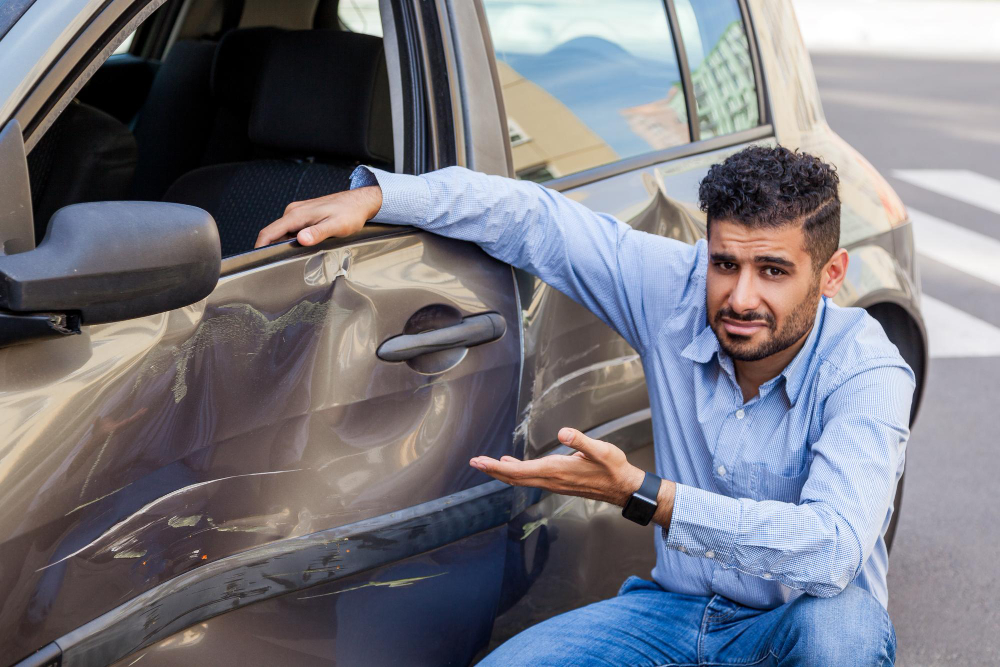
Car accidents often lead to severe trauma, leaving individuals overwhelmed. After being involved in these incidents, individuals may make errors that have far-reaching repercussions. These missteps could range from trivial slip-ups to significant gaffes, negatively impacting your physical, emotional, and financial status and your injury claim or lawsuit. Regrettably, the tumult and bewilderment following an accident can muddle clear thinking and judgment, leading to unnecessary mistakes that worsen the situation. We have curated a list of some common gaffes people often commit post-accidents to help you navigate the scenario effectively. Awareness of these errors could help you avoid them, ensuring you take crucial measures to safeguard your interests post an accident. Let’s examine these frequent mistakes to better equip you for any unforeseen road incidents in the future.
Neglecting Immediate Safety Priorities
In the immediate wake of an accident, the priority should always be to ensure everyone’s safety. This is often overlooked, making it a common error. Should your vehicle pose a threat to oncoming traffic and it’s safe to relocate it, take action promptly. Also, if safe, step out of your vehicle to check on others involved in the accident. Stay alert to potential dangers like fuel leaks, shattered glass, or incoming vehicles. Your safety and the safety of others should never be compromised.
Forgetting to Call the Police
It’s a common oversight to not notify the police after a car accident, regardless of how minor it may seem. The police report that results from their visit to the scene often serves a crucial role in insurance matters. This document encapsulates all the necessary details of the accident, including an officer’s evaluation of fault, which may be critical if a disagreement emerges down the line. As such, always remember to call the police after any car accident, no matter the scale.
Admitting Fault at the Scene
In the turmoil and strain of a vehicle collision, the urge to apologize or accept responsibility might be overwhelming. Nevertheless, it’s critical to restrain such a response. Even in seemingly clear-cut cases, unseen elements may exist that could sway the fault attribution. A premature admission could put your insurance claim at risk and potentially expose you to liability. Rather, maintain factual accuracy while describing the event, steering clear of remarks that might be construed as assuming fault.
Not Gathering Enough Information
In the ensuing chaos post-accident, collecting relevant details often gets neglected. This, however, can create a disadvantage in future proceedings. Make it a priority to obtain contact and insurance details from all involved parties. Capture the scene in photos, including vehicle damage, the state of the road, and any visible injuries. Additionally, secure the contact details of any eyewitnesses to the accident. This comprehensive collection of information can prove vital during insurance claims and potential legal matters.
Neglecting Medical Attention
Overlooking the need for a medical check-up post-accident is a common error, even when you feel fine. Not all injuries manifest symptoms immediately. Certain conditions, like whiplash or concussions, may take time to emerge. Receiving a prompt medical evaluation can help identify these injuries early on. Additionally, the documentation from your medical visit can serve as crucial evidence if a personal injury claim becomes necessary. It’s wise to prioritize your health and secure supporting evidence by seeking medical attention promptly after a car accident.
Communicating Directly with Other Party’s Insurance
Engaging directly with the opposing party’s insurer following an accident might appear to be a reasonable step. However, unadvised discussions could lead to comments being used to your disadvantage in future proceedings. A safer approach would be to allow all communication to be managed by your own insurance company or your lawyer. This method ensures that your interests are safeguarded and helps to avoid any missteps that could negatively impact your claim.
Not Seeking Legal Counsel
It’s a common oversight to dismiss the need for legal advice after a car accident, viewing it as an unnecessary hassle. This is often a costly misstep. Even when your case appears clear-cut, getting an attorney to evaluate your situation can be advantageous. They can help you grasp your rights and possible outcomes, safeguarding you from potential manipulation. A lawyer possesses deep knowledge of laws concerning car accidents, helping you steer through complex insurance claims and possible litigations. They can also advocate for you in negotiations, increasing your chances of a satisfactory settlement. Ignoring the need for legal advice can leave you ill-prepared and exposed, a frequent yet preventable error. Hence, it’s recommended to seek a legal consultation after an accident to ensure informed decision-making.
Contact SG Injury Law Today
In the wake of a motor vehicle accident, engaging SG Injury Law is critical to safeguard your legal entitlements. Our skilled cadre of legal professionals stands ready to guide you through the complexities of post-crash proceedings. Our commitment lies in ensuring your justified reimbursement, alleviating your worries and demystifying this demanding phase. Whether helping with insurance procedures or standing for you in court, we are with you at each stage. Time is often a crucial factor in such instances; hence, delay is not advised. Connect with SG Injury Law now, and let our car accident lawyers be your unyielding ally during these trying times.
